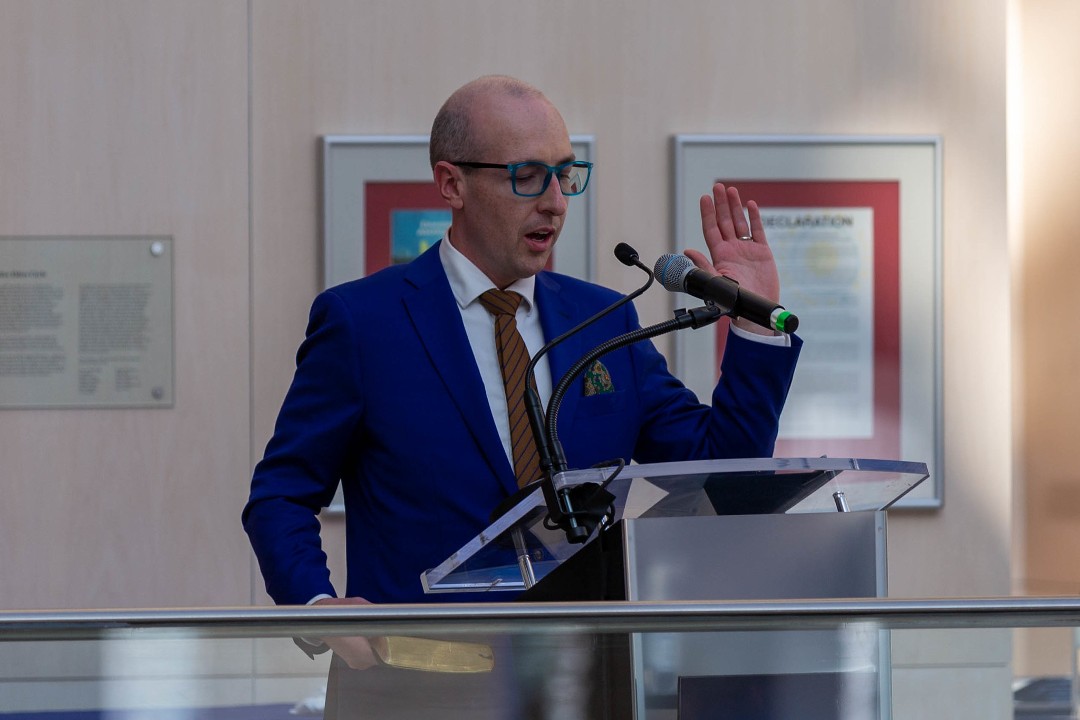
Bill 50 could allow money to 'overpower democracy': Knack
One Edmonton city councillor says the United Conservative Party government's Bill 50 could create cascading financial disadvantages for independent candidates running against candidates who are part of a party in the municipal election in October.
"Not only does a political party essentially get to ... raise double compared to somebody that's going to run as an independent, now (that party) can choose to transfer as much of that money as they want over to individual candidates," Coun. Andrew Knack told Taproot. "In Bill 50, (the UCP) have really formalized what I think a lot of people expected."
Bill 50, which passed second reading on April 30, builds on Bill 20, which became law in 2024. The earlier bill allows a municipal party to raise money and lets a candidate of that party raise money individually, essentially doubling the overall amount candidates in wards can raise. Critics have suggested this allows money and those who have it to play an outsized role in elections.
Knack said Bill 50, once passed, will accelerate this trend, as a candidate's party will now be allowed to divert any money it raises for an overall group of party candidates to specific candidates in specific wards, allowing individual races to potentially become flooded by dollars to help a party's candidate to win.
This practice already takes place with provincial and federal parties in their first-past-the-post races and was on display in the recent federal election, where parties invested time and resources in ridings they saw a chance of flipping, such as Edmonton Centre and Edmonton Southeast.
Independent candidates have been the only type of candidate in Edmonton elections since the late 1980s, the last time some candidates belonged to slates such as the Edmonton Voters Association or Urban Renewal Group Edmonton. But Knack said the scenario where a newly minted party devotes resources to beat an independent means that independent candidates face a potential double disadvantage in 2025, while wealthy donors face far fewer barriers to influencing outcomes.
"So, somebody that's running as part of a party gets this distinct financial advantage, and this is at a time where we're seeing in the U.S. billionaires come in and try to influence elections ... and trying to just overpower democracy with money," he said.






